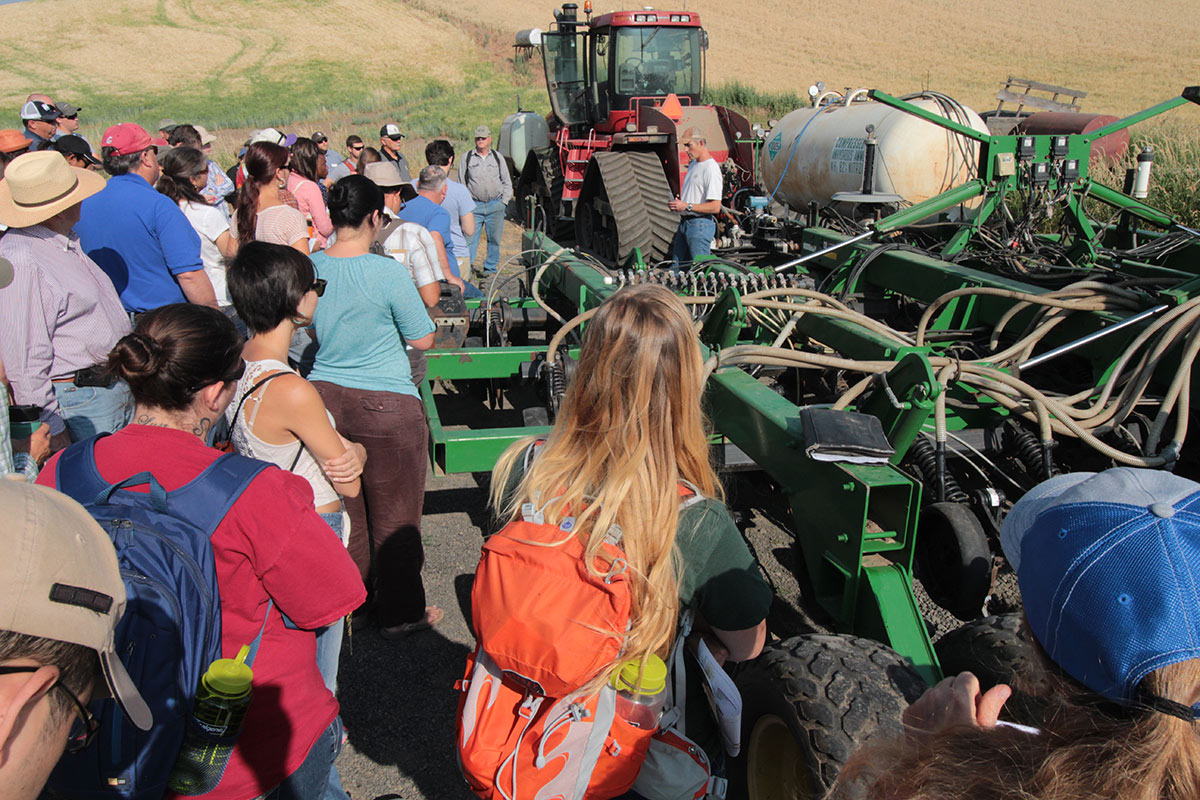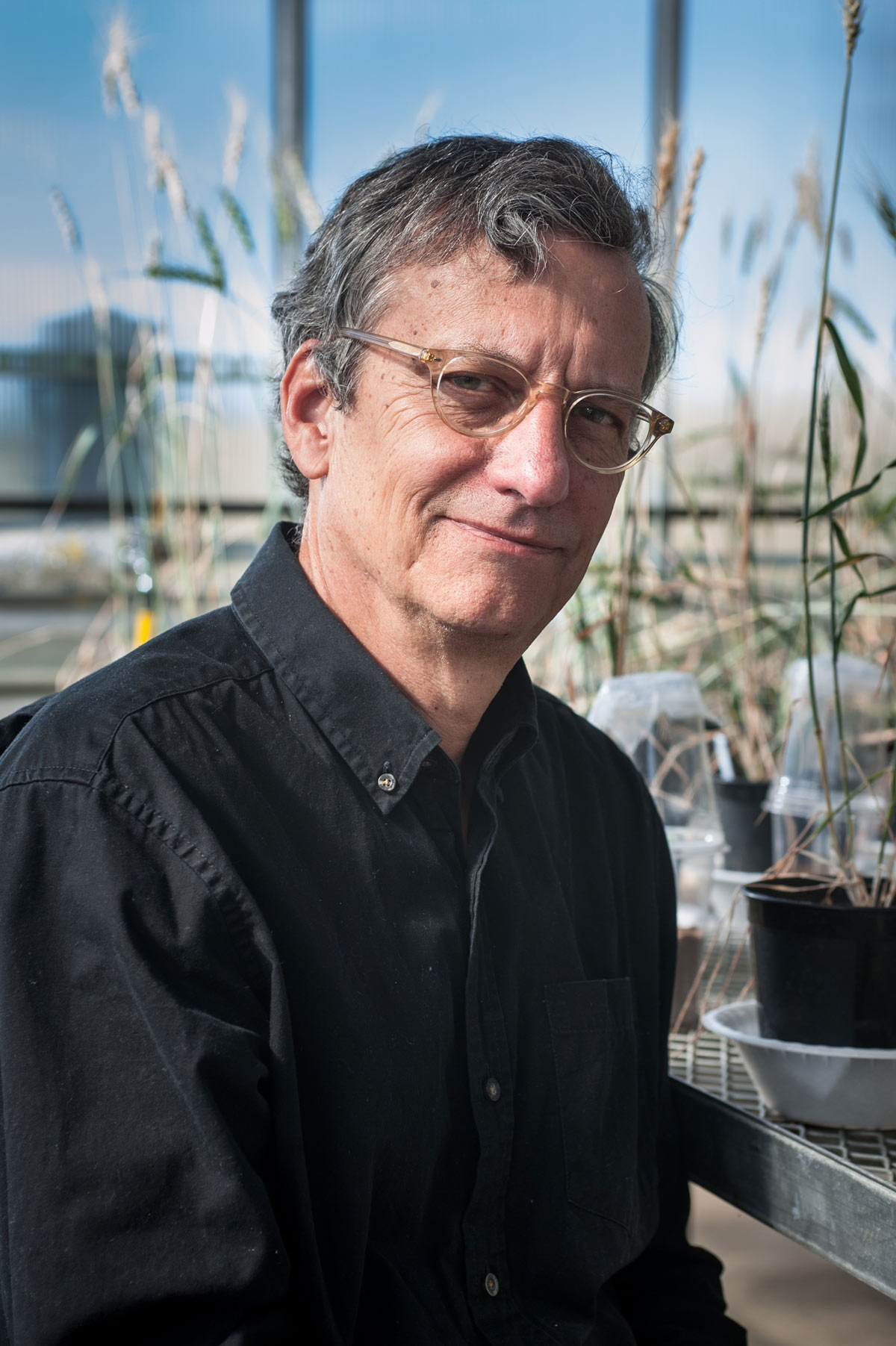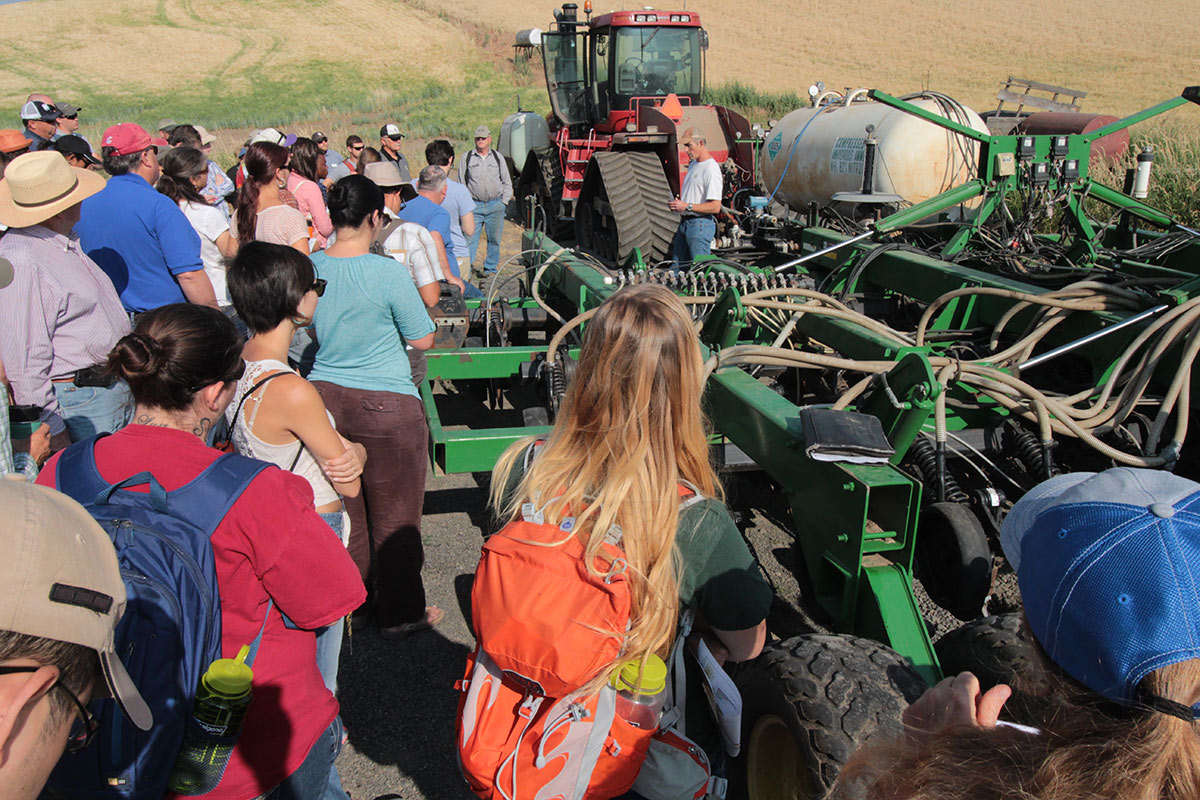Growing Climate Resilience for Wheat
REACCH project wraps up five-year run of helping farmers prepare for the future
Eric Odberg grows wheat and other crops near Genesee. He believes the University of Idaho’s largest-ever research grant brings growers new tools to face a future with climate change.
The $20 million, five-year Regional Approaches to Climate Change in Pacific Northwest Agriculture (REACCH) project, funded in February 2011 by the U.S. Department of Agriculture’s National Institute of Food and Agriculture, focused on wheat, one of the world’s most important grains.
Odberg is a longtime advocate of agricultural innovation. He embraced minimal-tillage practices to reduced soil disturbance and increase its capacity to hold water. He expanded crop rotations to reduce pests and enhance yields.
Much of what he did before becoming involved with REACCH was based on educated guesses, soil tests and hunches. REACCH offered the chance to verify that he was on the right track and to adjust to changes in growing conditions related to climate.
Odberg’s experience with carefully controlling fertilizer applications of anhydrous ammonia, a greenhouse gas, led REACCH to make his farm a stop on a 2015 Precision Agriculture Field Day.
“There’s only so much you can do to prepare for climate change. But just think about all of the farmers in the ’30s in the Dust Bowl if they had had a project like this going on in the ’20s preparing them for what was going to happen,” Odberg said. “And now we just have so much more technology on our side to do that for us. I think that is what the greatest value of this whole grant has been.”

Serving Farmers and Beyond
Sanford Eigenbrode, a UI Distinguished Professor in the College of Agricultural and Life Sciences, entomologist and director of the REACCH project, hopes the project will continue to serve farmers like Odberg, agriculture as a whole and society after it officially winds down beginning in February 2016.
The project drew together nearly 200 researchers across Idaho, Washington and Oregon. They explored future climate impacts, found ways to mitigate them through agricultural practices and developed curricula to include climate science in classrooms from kindergarten to college.
UI, Washington State University, Oregon State University and the U.S. Department of Agriculture’s Agricultural Research Service collaborated on the project.
In mid-November, Eigenbrode and his REACCH colleagues sponsored an international conference in Minneapolis to share current knowledge and establish a network that will connect researchers in the future.
During REACCH’s five years, wet fall weather, rainy springs and warm temperatures complicated the lives of Idaho’s farmers at harvest, planting and throughout the growing seasons. All are projected results of climate change according to computer models.
Extending REACCH
REACCH researchers are planning to publish their findings in novel ways such as special editions of scientific journals to make its researchers’ contributions more accessible.
Seasonal weather changes have caught farmers’ attention, and some are considering climate impacts. More farmers, however, are probably more inclined to increase their commitment to established practices that also help them face climate-related change.
When it comes to climate change and the individual farmer preparing to meet it, “the challenge is that everything is complicated, so there isn’t a simple step,” says Kristy Borrelli, a UI Extension educator hired through the project to work with farmers. “It really just comes down to basic conservation practices.”
Minimizing plowing is a time-proven strategy to reduce erosion, which is a likely result of warmer, wetter winters and more rain. “Tilling as little as possible when you can get into the field helps. And wetter springs mean you can’t get your plows into the field whether you want to or not,” Borrelli says.
Farmers also may plant more in the fall to provide cover for fields exposed to rain-related erosion, cutting down on tractor fuel costs in the spring. Another tactic, precise nitrogen applications to supply plants only what they need, cuts both climate impacts and costs.
The five-year REACCH project only begins to scratch the surface of the climate science issues faced by farmers in an industry more than a century old.
“I’ve worked on the project three years and I think I’m just starting to understand what climate change is,” Borrelli says.
“And that is one of the problems: the science behind climate change is so complicated, and then you get the controversy and speculation, and it just pulls people’s minds in so many different directions,” she says. “But what I’m hoping we’ve accomplished is developing tools and information and we have that base level of information that we can build off from to inform people.”
- Article by Bill Loftus, UI College of Agricultural and Life Sciences









